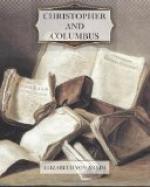And having definitely chosen Arthur, she concentrated what she had of determination in finding an employment for her nieces that would remove them beyond the range of his growing wrath. She found it in a children’s hospital as far away as Worcestershire, a hospital subscribed to very largely by Arthur, for being a good man he subscribed to hospitals. The matron objected, but Aunt Alice overrode the matron; and from January to April Uncle Arthur’s house was pure from Germans.
Then they came back again.
It had been impossible to keep them. The nurses wouldn’t work with them. The sick children had relapses when they discovered who it was who brought them their food, and cried for their mothers. It had been arranged between Aunt Alice and the matron that the unfortunate nationality of her nieces should not be mentioned. They were just to be Aunt Alice’s nieces, the Miss Twinklers,—("We will leave out the von,” said Aunt Alice, full of unnatural cunning. “They have a von, you know, poor things—such a very labelling thing to have. But Twinkler without it might quite well be English. Who can possibly tell? It isn’t as though they had had some shocking name like Bismarck.”)
Nothing, however, availed against the damning evidence of the rolled r’s. Combined with the silvery fair hair and the determined little mouths and chins, it was irresistible. Clearly they were foreigners, and equally clearly they were not Italians, or Russians, or French. Within a week the nurses spoke of them in private as Fritz and Franz. Within a fortnight a deputation of staff sisters went to the matron and asked, on patriotic grounds, for the removal of the Misses Twinkler. The matron, with the fear of Uncle Arthur in her heart, for he was altogether the biggest subscriber, sharply sent the deputation about its business; and being a matron of great competence and courage she would probably have continued to be able to force the new probationers upon the nurses if it had not been for the inability, which was conspicuous, of the younger Miss Twinkler to acquire efficiency.
In vain did Anna-Rose try to make up for Anna-Felicitas’s shortcomings by a double zeal, a double willingness and cheerfulness. Anna-Felicitas was a born dreamer, a born bungler with her hands and feet. She not only never from first to last succeeded in filling the thirty hot-water bottles, which were her care, in thirty minutes, which was her duty, but every time she met a pail standing about she knocked against it and it fell over. Patients and nurses watched her approach with apprehension. Her ward was in a constant condition of flood.
“It’s because she’s thinking of something else,” Anna-Rose tried eagerly to explain to the indignant sister-in-charge.
“Thinking of something else!” echoed the sister.
“She reads, you see, a lot—whenever she gets the chance she reads—”
“Reads!” echoed the sister.




